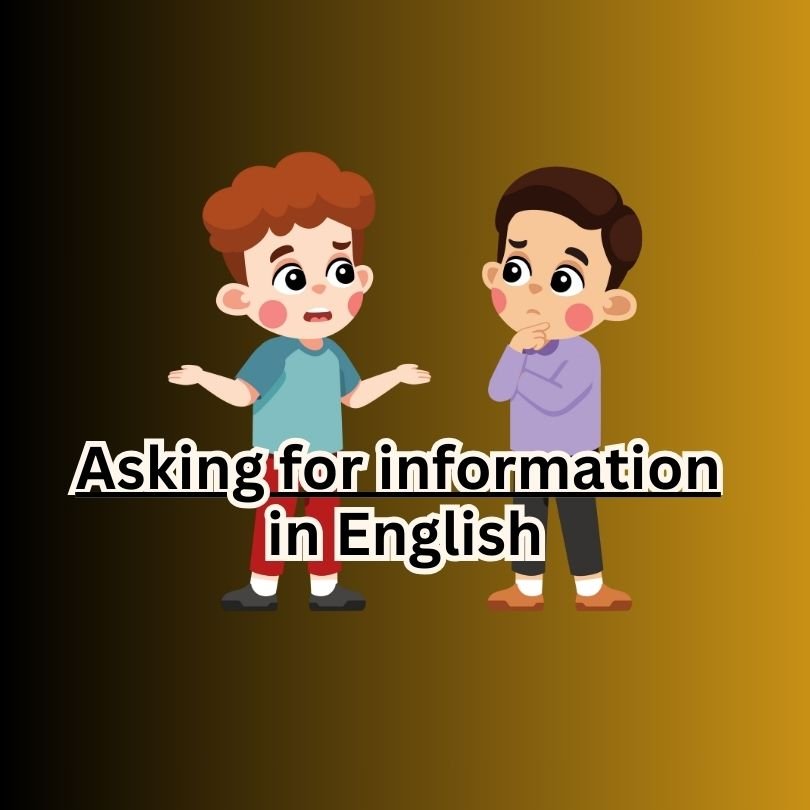Asking for Information in English: Common Expressions and Responses
Asking for information is a fundamental skill in any language, and English is no exception. Whether you’re a beginner or an advanced learner, knowing how to ask for information politely and respond correctly can make your communication more effective. This article will guide you through common expressions used to ask for information in English, provide detailed explanations, and give practical examples to help you understand and use these expressions in daily life.
Common Expressions for Asking for Information
When asking for information, it’s important to be polite and clear. Here are some common expressions you can use:
- Can you tell me…? Example: Can you tell me where the nearest bus stop is?
- Do you know…? Example: Do you know when the next train to London leaves?
- Could you please tell me…? Example: Could you please tell me how to get to the airport?
- Would you mind telling me…? Example: Would you mind telling me what time the meeting starts?
- I was wondering if you could tell me…? Example: I was wondering if you could tell me the best place to eat around here.
Responding to Requests for Information
When someone asks you for information, it’s equally important to respond clearly and politely. Here are some common ways to respond:
- Sure, it’s… Example: Sure, it’s just around the corner.
- I’m sorry, but I don’t know. Example: I’m sorry, but I don’t know where that is.
- Let me check for you. Example: Let me check for you. Just a moment.
- I think it’s… Example: I think it’s the second street on the left.
- You can find it… Example: You can find it next to the supermarket.
Examples of Asking for Information
Here are some practical examples of how to ask for information in different situations:
- At a Tourist Information Center:
- Visitor: Can you tell me the best way to get to the museum?
- Staff: Sure, you can take the number 5 bus from here.
- At a Train Station:
- Passenger: Do you know when the next train to Paris leaves?
- Attendant: The next train to Paris leaves at 10:45 AM.
- On the Street:
- Person: Could you please tell me where the nearest ATM is?
- Local: Yes, there’s one just down the street on your right.
Sample Dialogue
Here’s a dialogue to show how these expressions can be used in a conversation:
Dialogue at a Hotel Reception:
Guest: Good morning. Could you please tell me if breakfast is included with my stay?
Receptionist: Good morning! Yes, breakfast is included and is served from 7 AM to 10 AM in the dining area.
Guest: Great! Also, do you know if there is a laundry service available?
Receptionist: Yes, we have a laundry service. You can find the laundry bag and price list in your room.
Guest: Thank you. One more thing, I was wondering if you could tell me how to get to the nearest shopping mall?
Receptionist: Of course! The nearest shopping mall is just a 10-minute walk from here. Turn left when you exit the hotel and go straight until you see the large building on your right.
Guest: Thank you very much for your help.
Receptionist: You’re welcome! Have a great day.
Conclusion
Asking for information and responding to such requests are crucial communication skills in English. By using polite and clear expressions, you can effectively seek and provide information in various situations. Practice these expressions regularly to become more confident in your interactions.


One response to “Asking for Information in English: Common Expressions and Responses”
You should take part in a contest for one of the best blogs on the web. I will recommend this site!